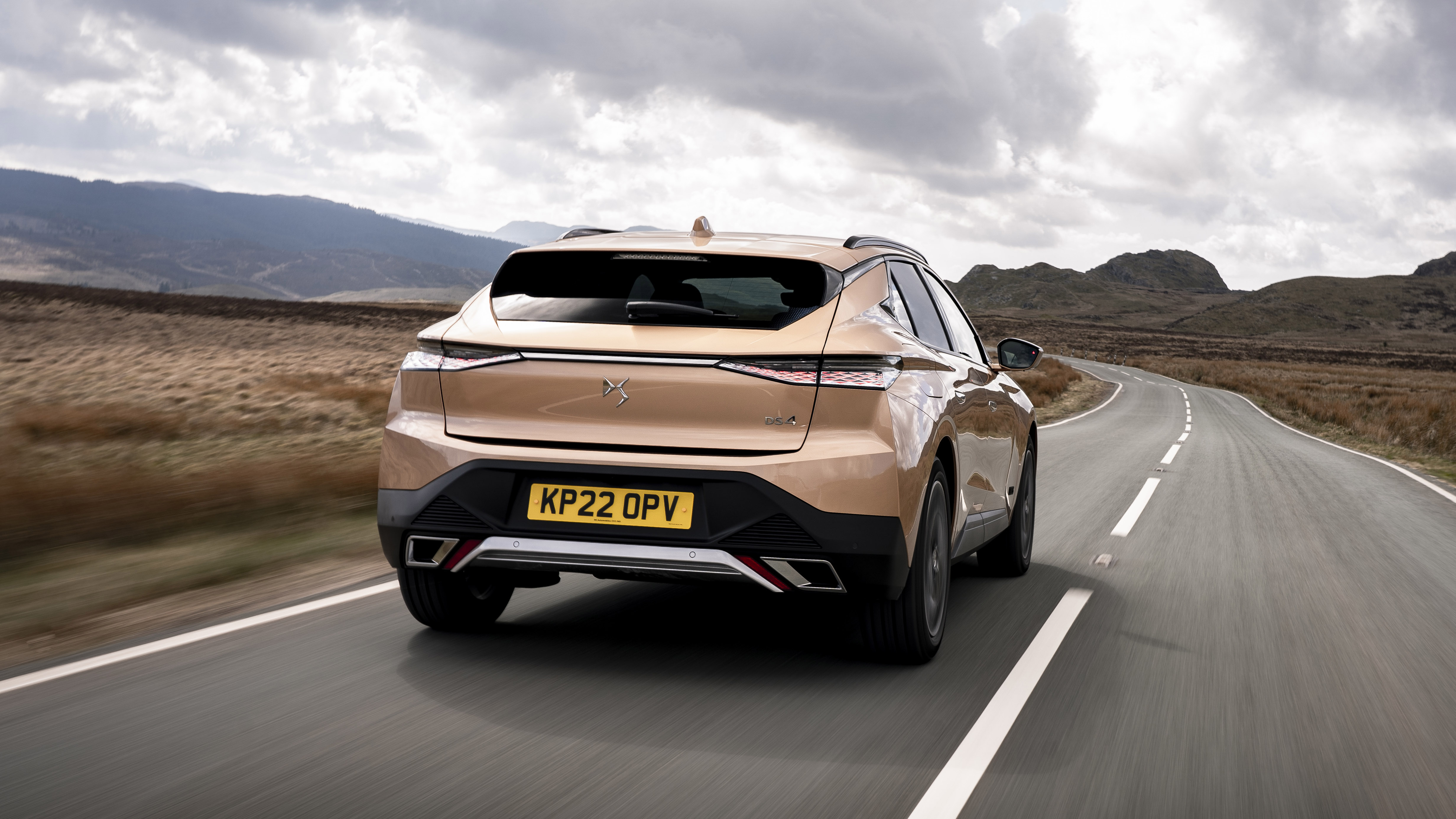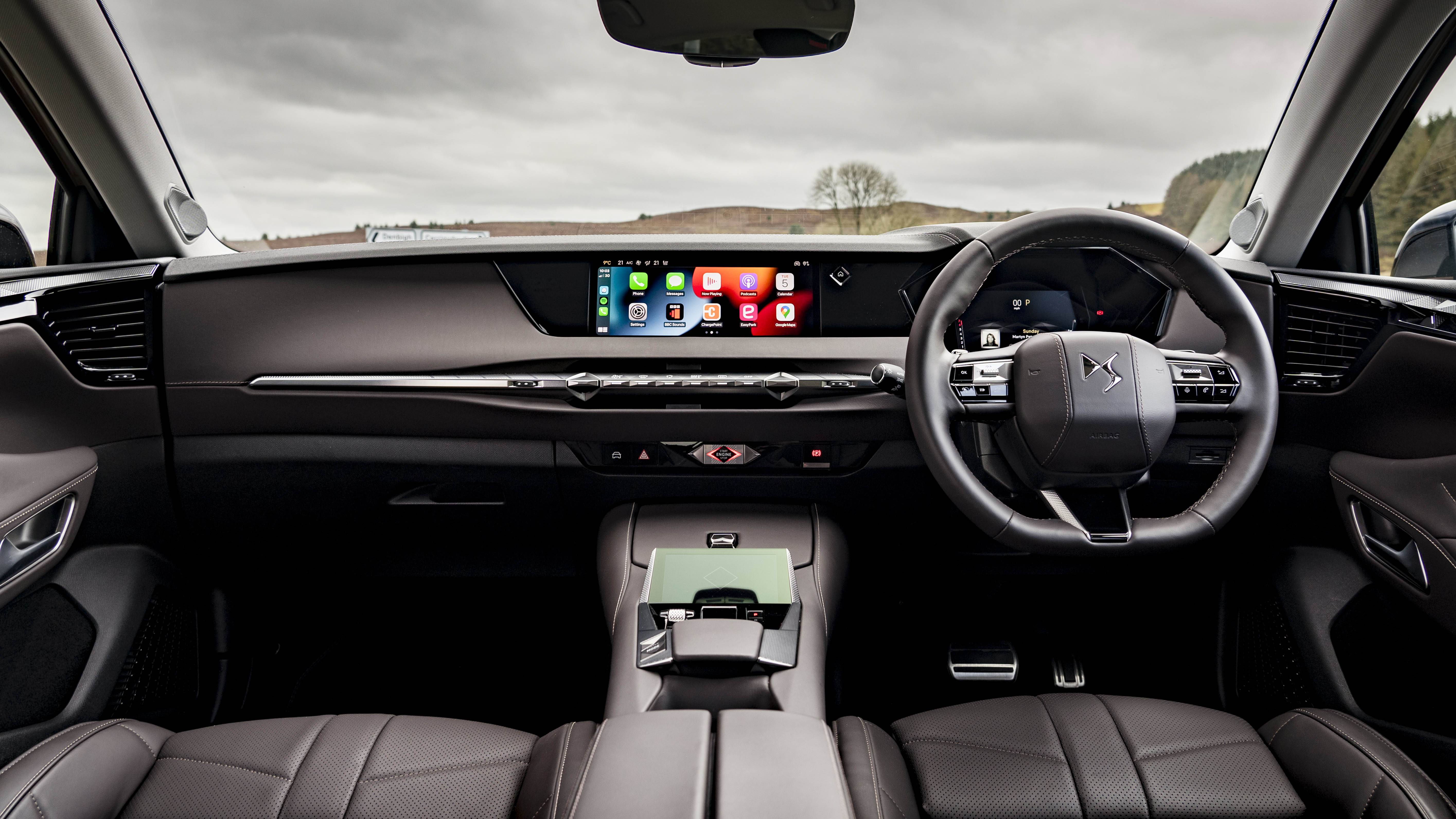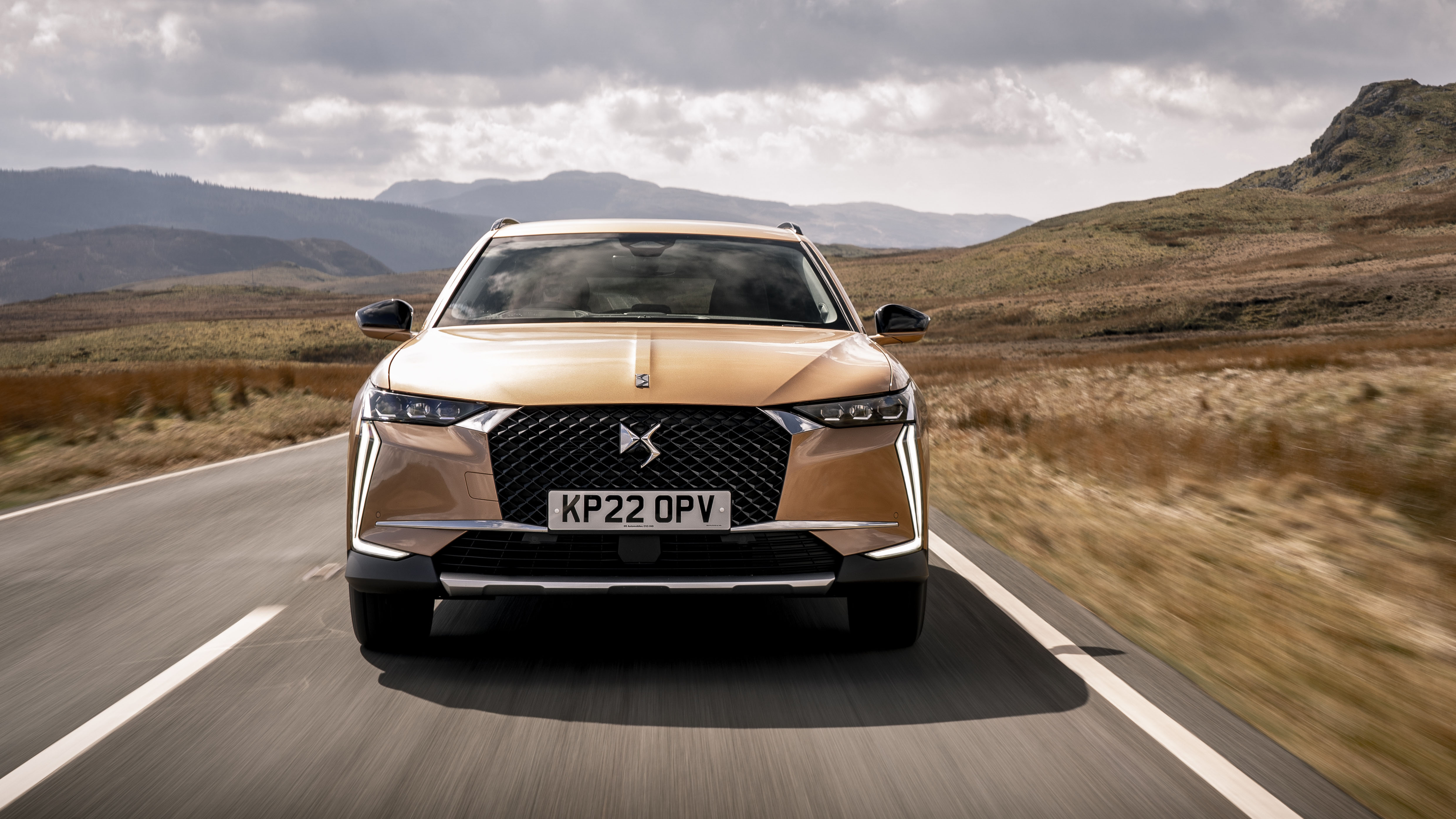
Interior
What is it like on the inside?
The DS 4 likes to remind you it's from the global centre of fashion. Even if being a £30k-40k hatchback does put practical and cost limits on the materials and finishes.
It's plush and rather ornamental, with knurled metal (and fake metal), unusual stitching patterns, and acres of soft furniture. The air vents are tucked out of your eyeline, the centre ones behind the climate controls themselves and the outer ones in the doors.
The body is (very) deep and the glass shallow, so it feels cocooning rather than airy. Space, front and back, is what you'd expect in a hatch. Family crossovers are roomier. And if you want versatility – individual sliding rear seats or variable boot floor – stroll over the dealer floor to the Citroen C5 Aircross.
Easy to use or wilfully eccentric?
The DS 4 sees the first outing of a new touchscreen system that looks good and responds smartly. It has some very useful configuration options so you can set it up for rapid access to your most-used displays and controls, via a series of widgets and menus.
All except the cheapest DS 4 have another screen called Smart Touch, down where you'd find an iDrive controller or similar. This acts as a handwriting pad and map-zoom control. More significantly, you can use it to assign six shortcuts, each accessed by a swipe – up, down or the diagonals. You assign them to favourite destinations, radio stations or phone numbers, or particular displays and settings. We'd have one for the all-round cameras for quick activation approaching width restrictors and carpark ramps.
There are one or two hardware buttons too, including a 'home' key for the screen, and one for rapid-access to the driver aids. Also a volume knob driver and passenger can reach, hooray. There's also a wide, informative HUD in most versions. Again, configurable.
Oh, and DS has decided that you should be able to have a full conversation with your car, and so it has set about integrating the ChatGPT artificial intelligence programme into 20,000 customer cars across five European countries as part of a pilot study. Will someone check on the boss? We’re worried they might not have any friends.
You activate the system as you would with any in-car voice control, only the DS's virtual assistant is called Iris. Once you’ve woken it up you can ask it pretty much anything you like, and just for a moment it might trick you into thinking it’s better than standard systems with a much wider range.
Soon enough the mask slips, though. During our time with the ever listening 4 it suggested the sandwich chain Subway as the second-best restaurant in the whole of London and often wouldn’t recognise when we were trying to ask it a question. It also only has knowledge of events up until September 2021 and DS has designed it so that the voice graphic takes over the whole infotainment screen, meaning a few prods are needed to get back to your maps.
Still, the whole point of this machine learning software is that it learns to expect what you’re going to ask, how you’re going to ask it and what your accent sounds like. Apparently that’s supposed to be a good thing. Maybe we’re just paranoid, but we’d probably prefer to drive our cars rather than talk to them.
Featured

Trending this week
- Car Review
BMW iX3






